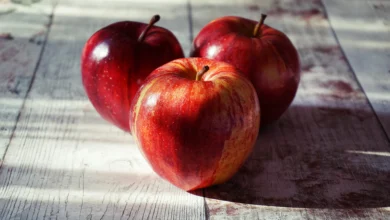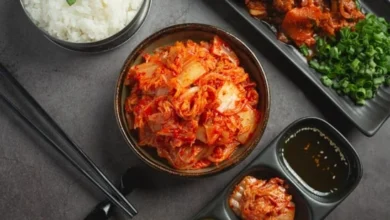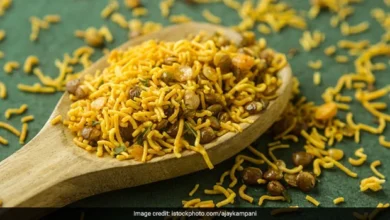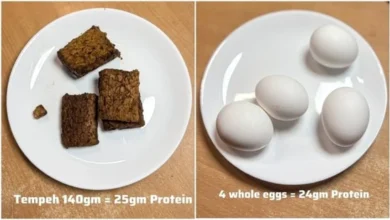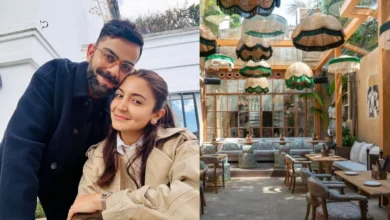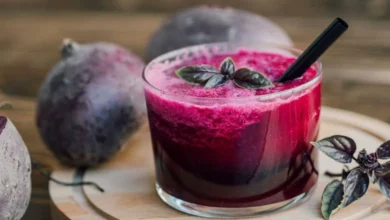Here is how Pune’s chefs and brewers are redefining dining spaces in the city

Earlier this year,Pune‘s dining scene took several hits. Following the Porsche crash incident in May, authorities tightened rules around nightlife, leading to cancelled gigs, earlier closing times, and up to 50 per cent drop in weekend footfall.
The city’s extreme summer heat further kept diners indoors, affecting open-air cafés and lunch service. Adding to the strain, hygiene lapses — like the FDA’s suspension of Café Goodluck’s licence — triggered stricter inspections across eateries. Meanwhile, rising excise duties and licence fees prompted nearly 4,000 bars and permit rooms to protest with a one-day shutdown. Together, these factors had left Pune’s once-buzzing food and nightlife industry grappling with falling revenues and a cautious, watchful mood.
But the scene is beginning to shift again — not with loud re-openings, but with a quieter confidence, as chefs, brewers, and restaurateurs focus on quality, sustainability, and creating experiences that feel more mindful and rooted in place. Here are a few new openings we tried and loved.
For a progressive meal
Vardaan Marwah
When Chef Vardaan Marwah set out to build a progressive restaurant that celebrated Indian cuisine, he discovered Pune’s diners wanted more than tradition — they wanted diversity. “They enjoy spaces that let them travel through flavours rather than stay rooted in one region,” he says. The ancient grain farro, with its Mediterranean origins and historic ties to India, became his bridge — allowing him to blend ingredients, traditions, and techniques in a way that feels global yet grounded.
“For years, Pune’s discerning crowd had limited fine-dining options outside the 5-star circuit, often driving to Mumbai for that experience. With Farro, we wanted to bridge that gap and offer something elevated yet approachable,” Marwah says. The response, he adds, reflects a city ready for new culinary narratives.
Parmesan Jalebi; (right) Chefs Kiss
At Farro, food surprises without overwhelming. Nostalgia runs deep — like in the jalebi–parmesan dish inspired by Marwah’s memory of jalebi rabdi in Chandni Chowk. Reimagined as a savoury plate, it’s instantly familiar yet playfully inventive. Even the ubiquitous truffle fries get a rethink — 30 layered potato sheets, baked for 24 hours into a golden cube, served with fresh truffle and parmesan foam. “It’s indulgent yet precise — comfort food through a fine-dining lens,” he says.
Rootedness, too, is key. “Maharashtra now has tiny farms and producers around Pune offering beautiful seasonal ingredients,” says Marwah. Farro’s specials often spotlight local produce and native grains — a nod to seasonality and sustainability that keeps the menu fresh and relevant.
With its warm, modern design, evolving tasting menus, and focus on provenance, Farro captures Pune’s growing appetite for experiences that are thoughtful, adventurous, and deeply connected to place.
WHERE: Farro, Shop 1/2, Lane No. 6, Meera Nagar Garden Society, Meera Nagar,KoregaonPark, Pune
For out of the ordinary
Poornima Somayaji
For long, Pune’s food scene has revolved around its Marathi comfort — from Shreyas and Sujata Mastani to Bipin Snacks and Surve’s meaty fare. However, over the last fifteen years, the city has quietly rewritten its culinary identity, stepping out of Mumbai’s shadow to champion its own voice.
Aragma is part of that evolution. What began in 2020 as a cooking and experiential studio is now a 24-seater fine-dining space dedicated to seasonal, local produce. With soft grey walls, warm wood accents, and minimalist design, the focus stays where it matters — on the plate.
Love in disguise
Owner Poornima Somayaji, an engineer-turned-restaurateur, teamed up with Chef Amit Ghorpade to craft five- and eight-course menus that bring everyday ingredients to life in unexpected ways — curry leaves and moringa incocktails, matki pasta, urad dal and jowar bread, avocado with finger millets, salt-cured red snapper. “Food gave me joy and transformed me,” says Somayaji. “I wanted to create that same experience for others.”
Married into a Kannadiga family, she learned heirloom recipes from her mother-in-law while exploring the Maharashtrian food of her own roots. “Engineering taught me to see food scientifically,” she smiles. With no industry connections, she built Aragma from scratch — finding mentors, collaborators, and her own rhythm along the way.
For Somayaji, Aragma is as much about storytelling as it is about food. “Indian cuisine has always been passed down orally — by taste, by memory,” she says. “We wanted to reinterpret that — to show that everyday ingredients can tell extraordinary stories.”
WHERE: Aragma, Ground Floor, Insignia, Sangamvadi, Pune
For the good ol’ brew
At Oi Brewhouse, the tap list reflects both global diversity and local curiosity — from familiar favourites like the Organic Wit and Lager to experiments like the Guava IPA and British Brown Ale. Pune’s palate is evolving, and Oi brews beers that encourage exploration beyond the ordinary pint.
Sustainability is central to the brewery’s identity. Achieving carbon neutrality across all three scopes — cutting direct and indirect emissions, reusing water, integrating renewable energy, and tracking material footprints — wasn’t easy. Still, it proved that great beer and responsible brewing can coexist.
Pineapple Gose; (right) DIY Mutton Seekh Kathi
Food and beer share equal billing here. Chef Vardaan Marwah and the brewing team co-create from concept to plate — caramelised onions meet malt-forward lagers, spice-rich dishes balance crisp, citrusy ales ensuring harmony in every pour and plate. Their on-site microbiology lab keeps quality consistent, saving batches and refining brews. “Every day’s a lesson,” says Co-Founder Aman Talreja, adding, “and consistency is our north star.”
This craft brewery is known for its sustainability practices and use of organic ingredients. Pics/Oi Brewhouse
For Oi, innovation has purpose. Collaborations like the “Beer from Air” project with Uravu Labs, which used water harvested from the atmosphere, showcase what’s possible when technology meets creativity. The future, they promise, will pour even more of both — with sustainability on tap.
WHERE: Oi Brewhouse, Ground Floor, Solitaire, next to Barbeque Nation, Kalyani Nagar, Pune
For comfort food
FC Road is chaos by default — honking cars, students haggling, and the constant hum of the city. But the moment you step into Café Sora, it’s like someone’s turned the volume down.
Cafe Sora offers a quick escape right in the middle of the city. PICS/CAFE SORA
For Chef Ambar Rode — who’s helmed kitchens like Brasserie Cinq and Le Petit Amour — Sora was born out of a need for stillness. “I wanted a place where you could be one hundred per cent present,” he says. The café opens to the sky, its burnt-orange walls and soft neutral palette bathed in natural light. On one wall, Rode’s travel photographs trace his journeys across North America, Southeast Asia, and Europe — fleeting moments that shaped his creative eye.
That quiet emotion flows into the food. A Watermelon and Feta Salad hums with Thai red chilli and kaffir lime. The Tonkatsu Sandwich is indulgent and precise, with the bread and sauce made in-house. The thecha babka with hummus is a playful local-meets-Mediterranean twist that feels both comforting and clever.
Sora’s menu leans on comfort — sourdough pizzas, hand-rolled pastas, and coffee brewed from Parvata Roasters’ Arabica-Robusta blend from Karnataka. “Pune enjoys its classics,” Rode says, “but it’s more experimental now. Diners want something familiar, just served or presented differently.”
Sora, which means ‘sky’ in Japanese, feels exactly that — open, light, and quietly uplifting.
WHERE: SORA, Patio Area, Fergusson College Road, inside Hotel Ketan, Ganeshwadi, Deccan Gymkhana, Pune
For slow dining
Conceived as a retreat in the middle of the city, The Lakehouse was built to let time slow down. Perched by a private lake, its design draws from the rhythm of water — reflective, fluid, unhurried. Open sightliness, natural materials, and seamless indoor–outdoor flow keep nature at the centre. As sunlight shifts through the day, so does the mood: tranquil mornings, glistening afternoons, and candlelit evenings invite to linger.
Dimsums
The menu celebrates simplicity and seasonality. Most produce comes from small farms across Maharashtra, ensuring freshness and integrity of flavour. Broths, pickles, and spice blends are made in-house, and every season the menu evolves — ingredients at their peak stay, others make way for what’s fresh. The result is food that feels soulful, refined, and deeply rooted in its surroundings. The cocktail programme mirrors this philosophy. Aditya Deshpande, Director, Amanora Park Town shares how the drinks use house-made infusions, clarified spirits, and herbs from the on-site garden. Lighter options complement daytime dining; evenings bring more layered, spirit-forward creations. “Both the kitchen and bar move in sync, shaping a calm, sensory experience,” he shares.
The Lakehouse’s multi-zone layout allows guests to find their own rhythm — whether it’s a quiet lunch, a lively celebration, or a slow drink by the water. That it was packed on a weekday says it all.
The Lakehouse offers a tranquil escape. PICS/The LAKEHOUSE
For Deshpande, “the real craft lies in consistency — keeping food, service, and ambience equally in mind as the restaurant grows. In doing so, The Lakehouse hopes to redefine slow dining in Pune — proving that fine dining can be modern, mindful, and full of heart”.
WHERE: The Lakehouse, Amanora Park Town, Amanora, Magarpatta Road, Hadapsar, Pune
For a piece of Vietnam
On Law College Road — where FTII chatter and chai stall debates fill the air — Banh House stands out in a flash of red and yellow, the closest thing Pune has to a slice of Saigon.
Banh Mi
Owner Rajat Kini didn’t follow a trend; he chased a memory. “When I travelled to Vietnam, I fell in love with the cuisine and culture, and I wanted to bring that experience home,” he says. He trained there, spent a year studying the food, and returned with a clear plan — a fast-casual café serving Vietnamese-style coffees, bánh mì, and small plates at prices that invite regular visits.
Kini’s Coconut Coffee and Grilled Chicken Bánh Mì are instant hits, while the Ham and Cheese and Shiitake Mushroom versions have their loyalists. The baguettes, sourced from Crustworthy, give each sandwich the perfect crunch and chew.
Banh House brings a taste of Saigon to Pune. Pics/Banh House
The neighbourhood — young, curious, and always hungry — has embraced it. “Most people who walk in have either travelled to Vietnam or want to,” Kini says. “For them, it’s about nostalgia or curiosity — not exoticism.”
He’s already dreaming of a pho-and-ramen offshoot, but for now, Banh House nails what few fast-casuals do: honest flavour, sharp pricing, and a little transportive joy.
WHERE: Banh House, Mantri Vertex, Law College Road, Apex Colony, Erandwane, Pune
For café moments
Kothrud has long been Pune’s genteel, Maharashtrian heartland — loyal to its family restaurants and traditional flavours. But Café PNQ, named after Pune’s airport code, is teaching the neighbourhood how to linger differently. “There are so many cafés in Koregaon Park,” says co-owner Siddhi Gokhale, who runs PNQ with Hrishikesh Bhide. “Kothrud felt underserved. We wanted a space where both twenty-somethings and their parents could feel at home.”
Latte
The café blends right into its surroundings — warm wooden interiors, wine-burgundy accents, and sunlight spilling across the open-air lower deck, where you can watch the neighbourhood move. Upstairs, a long community table doubles as a hub for weekend workshops and coffee-brewing lessons, making PNQ feel both familiar and curious.
The coffee programme, Gokhale says, is designed to ease Kothrud into India’s growing speciality coffee culture. PNQ sources beans from Caarabi Roasters, rotating Indian estates every month so regulars always taste something new. “Right now, we’re brewing beans from 7000 Steps in the Northeast,” she says. The team also experiments with playful spins — cold-brew Vietnamese coffee, and a gentle campaign to convert chai loyalists “first to cappuccino, and then to something a little bolder.”
The food strikes a similar balance — comforting but inventive. Think Tamda Rassa Birria Mutton Sandwich, where Maharashtrian curry serves as the consommé; Kala Masala Chicken Sandwich; Patti Prawns fried in samosa wraps; and vegetarian bites that re-imagine familiar flavours. Even the “parents’ generation,” Gokhale laughs, has joined the ritual — PNQ brews decaf coffee for the 60-plus crowd that gathers for morning gupshup.
At its heart, PNQ fills a simple gap: a community hangout that feels distinctly Kothrud. “I didn’t want to drive 10 kilometres every time I needed a casual place to meet friends — so we built one.”
